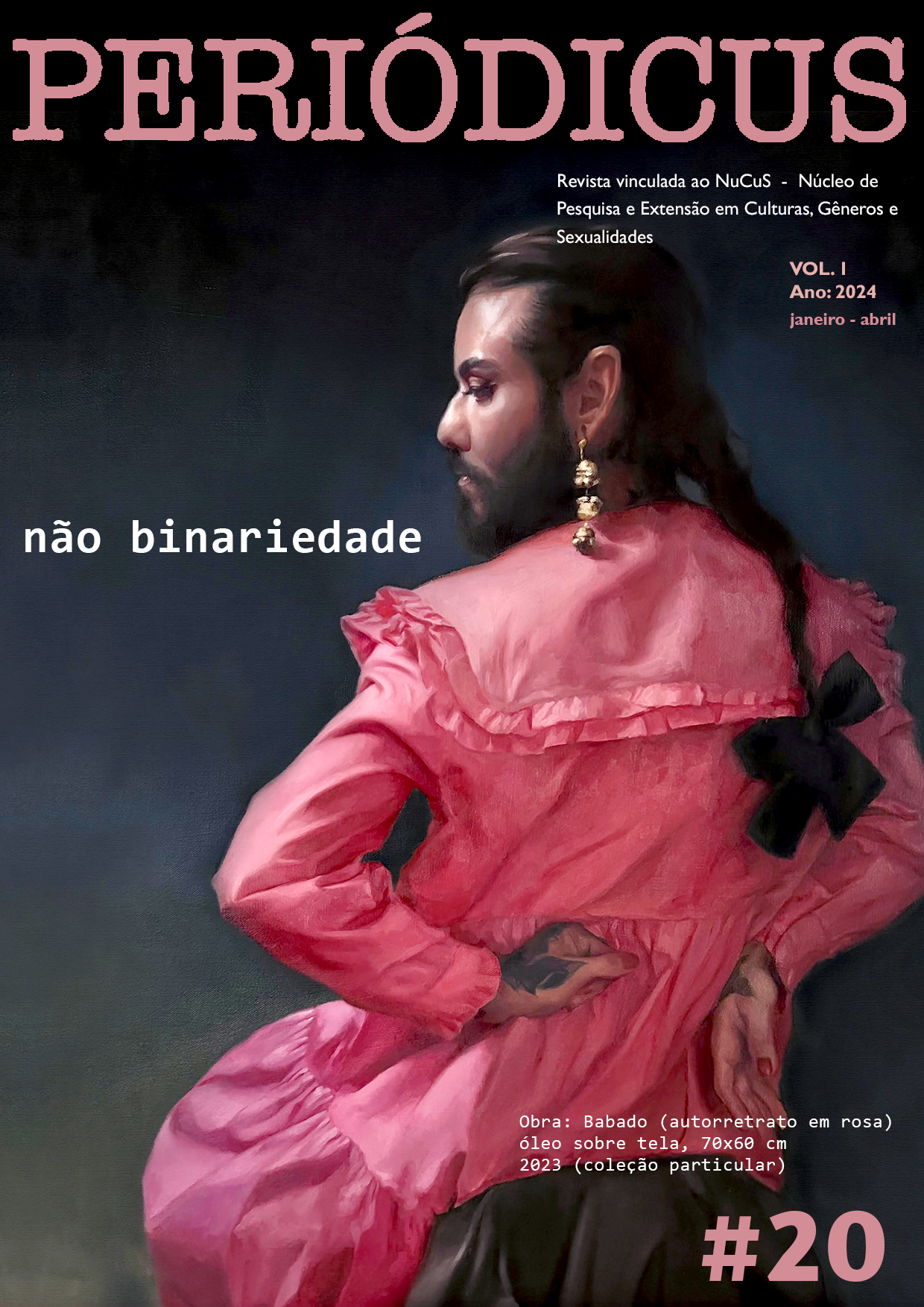Transphobia and non-binarity
the regime of sexual difference and the cisgender rule
DOI:
https://doi.org/10.9771/peri.v1i20.54773Abstract
This article aims to reflect on the historical process of the monosexual regime and sexual difference, terms created by Preciado (2022), and how they impact on gender constructions and the maintenance of transphobia, allied to cisgender standards. To analyze how transphobia affects non-binary trans corporalities, demanding a negotiation between aesthetics, passability and gender, in addition to the multiple forms of violence that plague the entire trans community in different ways. It is an invitation to go beyond the conventions of the cisgender rule, which continues to measure trans bodies and define their categories of belonging and inhumanity. For the construction of this reflection, authors such as Preciado (20220), Bento (2016), Tonhon (2016), Quinalha (2022), among other authors, are used.
Downloads
Downloads
Published
How to Cite
Issue
Section
License
Copyright (c) 2024 Lucas Silva Dantas

This work is licensed under a Creative Commons Attribution-NonCommercial 4.0 International License.
Autores que publicam nesta revista concordam com os seguintes termos:
Autores mantêm os direitos autorais e concedem à revista o direito de primeira publicação, com o trabalho simultaneamente licenciado sob Licença Creative Commons Attribution Noncommercial que permite o compartilhamento do trabalho com reconhecimento da autoria e publicação inicial nesta revista, sendo vedado o uso com fins comerciais.
Autores têm autorização para assumir contratos adicionais separadamente, para distribuição não-exclusiva da versão do trabalho publicada nesta revista (ex.: publicar em repositório institucional ou como capítulo de livro), com reconhecimento de autoria e publicação inicial nesta revista.
Autores têm permissão e são estimulados a publicar e distribuir seu trabalho online (ex.: em repositórios institucionais ou na sua página pessoal) a qualquer ponto antes ou durante o processo editorial, já que isso pode gerar alterações produtivas, bem como aumentar o impacto e a citação do trabalho publicado (Veja O Efeito do Acesso Livre).







